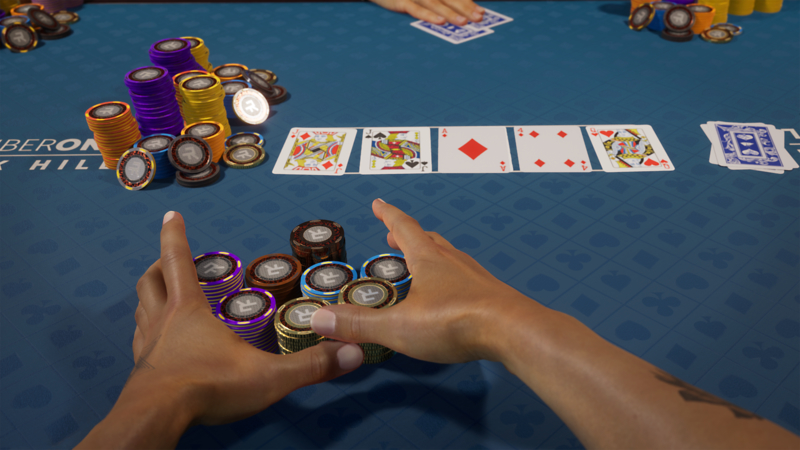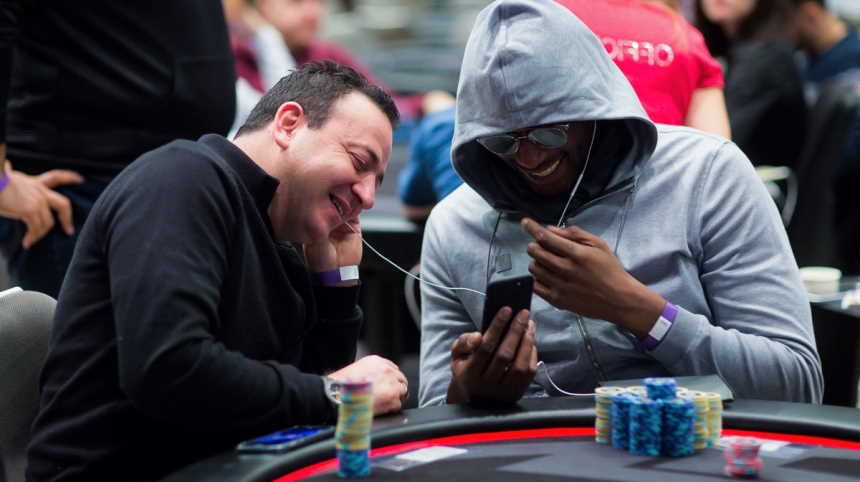Poker is a game of skill, strategy, and luck. To be successful at poker, it’s essential to understand how to read your opponent’s hand. This involves looking for tells in the other players’ betting patterns and physical behaviour that could indicate what cards they have or what type of hand they are playing.
It also involves understanding the odds of each possible outcome so that you can make an educated guess when deciding whether or not to call a bet. By becoming familiar with these techniques, you can increase your chances of winning more hands at the poker table. So let’s dive into how to read your opponent’s hand.
Understanding the odds of each possible outcome
Poker is a game of luck and chance, but the more one knows about the odds of each possible outcome, the better-equipped one will be to increase their chances of success. Therefore, to make wise decisions in the game, it is imperative to understand probabilities and expectations to calculate if any move should be made.
By considering odds like hand rankings and intersections between different player hands, one can develop a keen strategy for improving their chances. It also helps to consider other known variables, such as the pattern of how many players are in play and the amount being bet on each hand. Through a mastery of math and statistics, anyone can get up their game at poker by understanding which strategies are best fit for different situations.

Looking for tells in betting patterns and physical behaviour
While online poker games are often considered a game of luck, those with experience and practice know that success at the table is just as dependent on the player’s reasoning and strategy. By carefully observing their opponents in the game, experienced Poker players may be able to find clues about somebody’s cards simply by picking up on physical signs or betting styles.
A so-called “tell” can range from an increase in bet size when a firm hand is held or scratching one’s forehead when bluffing. Since these tells may be complex for an inexperienced poker player to notice, it’s recommended that they pay extra attention whenever playing at the table to better their chances of understanding what signals their opponent may be subconsciously revealing.
Analysing your opponent’s play style
Analysing a poker opponent’s play style is an essential skill that can give skilled players an advantage over the competition. While there are many aspects to consider, such as betting patterns, reading hands, and understanding the flow of the game, accurately determining and using an opponent’s strategy can help gain a strategic edge.
Through careful observation and practice, any player of any skill level can cultivate this ability and hone their skills for long-term success at the tables. In addition, by learning to identify various play styles, their relative merits in each situation, and how best to counter them successfully, you will be able to manage your strategy better when playing against opponents with varied backgrounds.

Making an Educated Guess When Deciding to Call a Bet
Deciding whether to call a bet in poker is an important decision that requires consideration, even in amateur games. The key to making an educated guess on when to proceed with the hand lies in having a deep knowledge of the game’s rules and the odds of winning. Knowing what cards are still in play and how those may affect the outcome are all factors that must be considered when assessing any implications for the pot size.
Exercising discipline over impulse, studying opponents for hints about their hands, and understanding your position at the table is all part and parcel of any strategy for making an informed decision when it comes time to call a bet.
Tips for improving your ability to read your opponent’s hand
If you want to become a savvy poker player, being able to read your opponent’s hand is essential. Players can gain additional insight into their opponent’s strengths and weaknesses through certain tells, usually present in behaviours such as check-raising or rapid betting. Becoming adept at recognising these tells takes patience and practice. Furthermore, it’s also crucial for poker players to focus on understanding the different strategies employed by their opponents to anticipate better the cards they may hold.
Finally, paying close attention to betting habits can also provide further clues about what your opponents have in their hands. By using these methods to gain insights into the strategies of fellow players and decode the ‘tells’ present during a game of poker, players can significantly improve their chances of taking home the winnings.

Putting it all together – How to make the most out of reading hands in poker
By combining the strategies described above and devoting time to practice and analysing opponents, any poker player can become a skilled reader of their opponent’s hands. With experience comes more knowledge of possible tells, betting patterns, play styles, and other helpful information that can be used to gain an edge over the competition.
Ultimately, learning how to read hands in poker is a skill that takes dedication and patience but can be highly beneficial for players of all levels. With enough practice and education, any poker enthusiast can become an expert reader of their opponents’ hands, allowing them to capitalise on their opponent’s weaknesses and maximise their chances of taking home the pot.
By understanding and properly utilising the techniques to read hands, any poker player can increase their chances of success and gain a strategic advantage over their opponents.
Click here for more gambling-related posts.